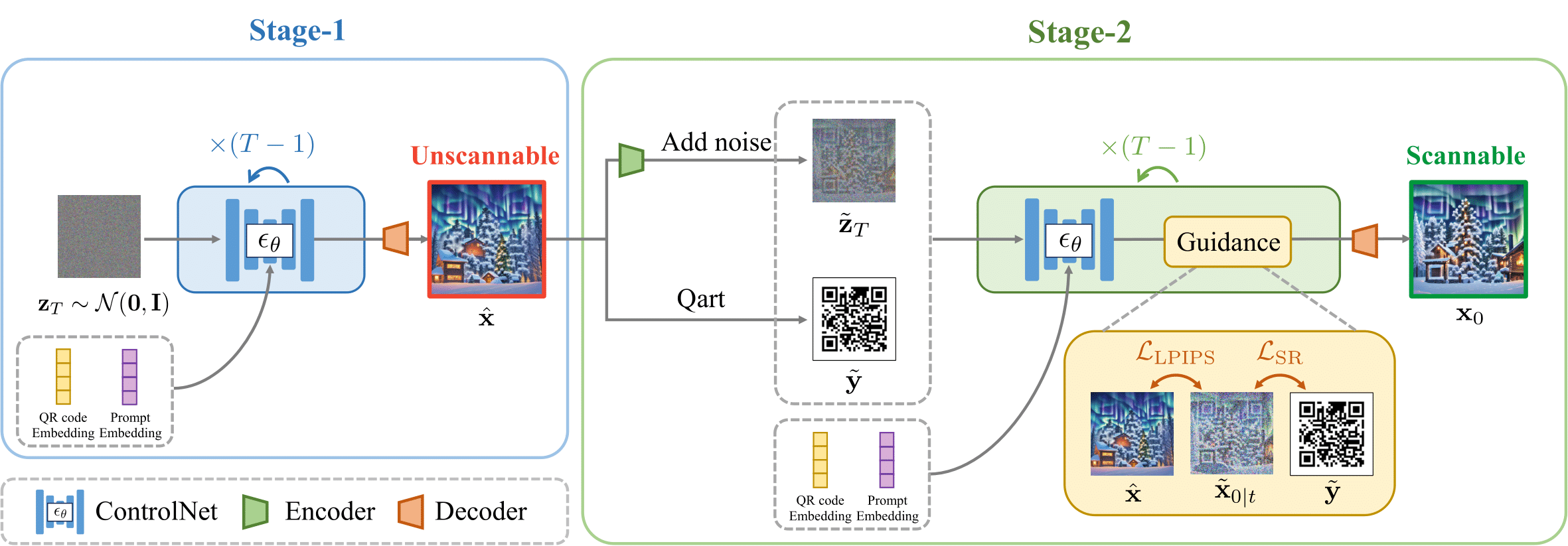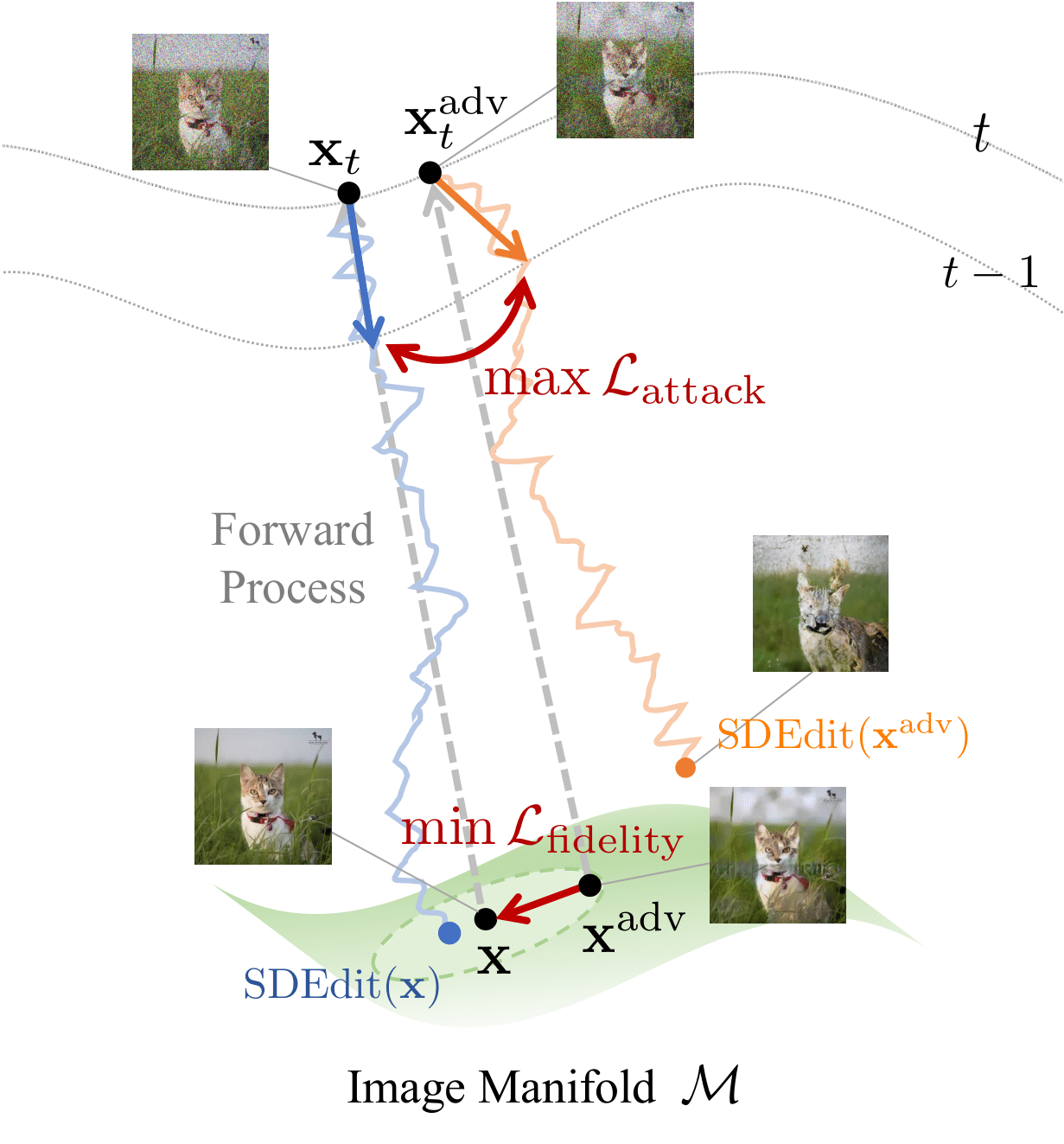publications
2025
- WACV 2025
 DiffQRCoder: Diffusion-based Aesthetic QR Code Generation with Scanning Robustness Guided Iterative RefinementJia-Wei Liao, Li-Xuan Peng*, Winston Wang*, Tzu-Sian Wang*, Ju-Hsuan Weng, Cheng-Fu Chou, and Jun-Cheng ChenIEEE/CVF Winter Conference on Applications of Computer Vision (WACV) , 2025
DiffQRCoder: Diffusion-based Aesthetic QR Code Generation with Scanning Robustness Guided Iterative RefinementJia-Wei Liao, Li-Xuan Peng*, Winston Wang*, Tzu-Sian Wang*, Ju-Hsuan Weng, Cheng-Fu Chou, and Jun-Cheng ChenIEEE/CVF Winter Conference on Applications of Computer Vision (WACV) , 2025With the success of Diffusion Models for image generation, the technologies also have revolutionized the aesthetic Quick Response (QR) code generation. Despite significant improvements in visual attractiveness for the beautified codes, their scannabilities are usually sacrificed and thus hinder their practical uses in real-world scenarios. To address this issue, we propose a novel Diffusion-based QR Code generator (DiffQRCoder) to effectively craft both scannable and visually pleasing QR codes. The proposed approach introduces Scanning-Robust Perceptual Guidance (SRPG), a new diffusion guidance for Diffusion Models to guarantee the generated aesthetic codes to obey the ground-truth QR codes while maintaining their attractiveness during the denoising process. Additionally, we present another post-processing technique, Scanning Robust Manifold Projected Gradient Descent (SR-MPGD), to further enhance their scanning robustness through iterative latent space optimization. With extensive experiments, the results demonstrate that our approach not only outperforms other compared methods in Scanning Success Rate (SSR) with better or comparable CLIP aesthetic score (CLIP-aes.) but also significantly improves the SSR of the ControlNet-only approach from 60% to 99%. The subjective evaluation indicates that our approach achieves promising visual attractiveness to users as well. Finally, even with different scanning angles and the most rigorous error tolerance settings, our approach robustly achieves over 95% SSR, demonstrating its capability for real-world applications.
2024
- AAAI 2025
 Pixel Is Not A Barrier: An Effective Evasion Attack for Pixel-Domain Diffusion ModelsChun-Yen Shih*, Li-Xuan Peng*, Jia-Wei Liao, Ernie Chu, Cheng-Fu Chou, and Jun-Cheng ChenAssociation for the Advancement of Artificial Intelligence (AAAI) 2025 , 2024
Pixel Is Not A Barrier: An Effective Evasion Attack for Pixel-Domain Diffusion ModelsChun-Yen Shih*, Li-Xuan Peng*, Jia-Wei Liao, Ernie Chu, Cheng-Fu Chou, and Jun-Cheng ChenAssociation for the Advancement of Artificial Intelligence (AAAI) 2025 , 2024Diffusion Models have emerged as powerful generative models for high-quality image synthesis, with many subsequent image editing techniques based on them. However, the ease of text-based image editing introduces significant risks, such as malicious editing for scams or intellectual property infringement. Previous works have attempted to safeguard images from diffusion-based editing by adding imperceptible perturbations. These methods are costly and specifically target prevalent Latent Diffusion Models (LDMs), while Pixeldomain Diffusion Models (PDMs) remain largely unexplored and robust against such attacks. Our work addresses this gap by proposing a novel attacking framework with a feature representation attack loss that exploits vulnerabilities in denoising UNets and a latent optimization strategy to enhance the naturalness of protected images. Extensive experiments demonstrate the effectiveness of our approach in attacking dominant PDM-based editing methods (e.g., SDEdit) while maintaining reasonable protection fidelity and robustness against common defense methods. Additionally, our framework is extensible to LDMs, achieving comparable performance to existing approaches.